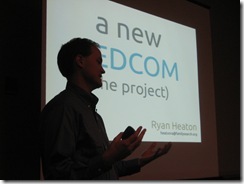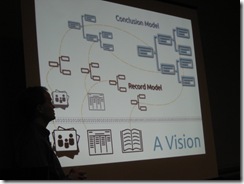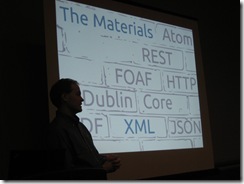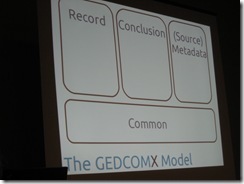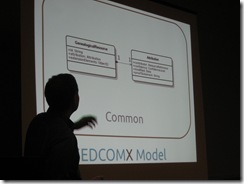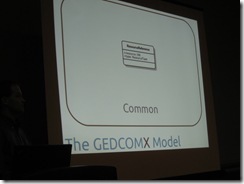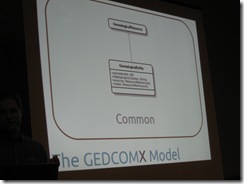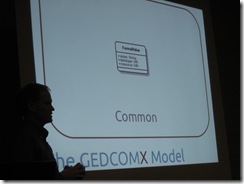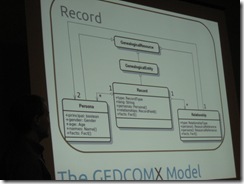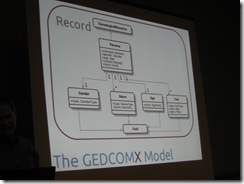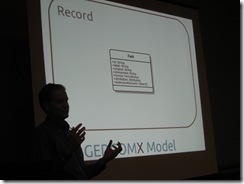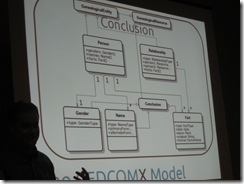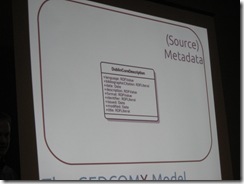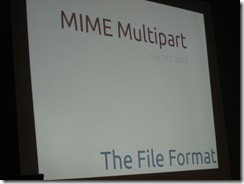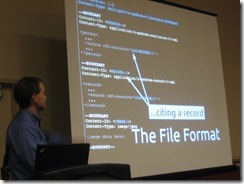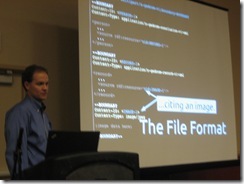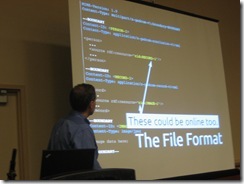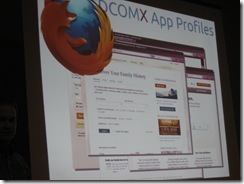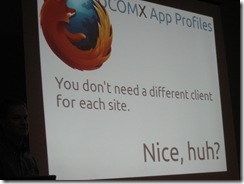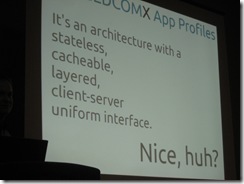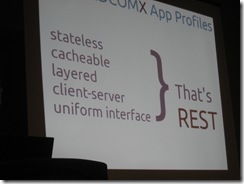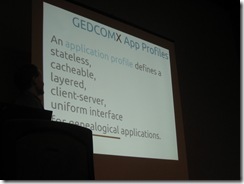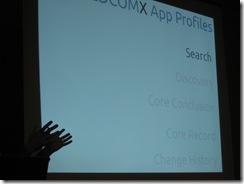Ryan Heaton: GEDCOM X at RootsTech 2012
These are the exact notes I took during Ryan’s two GEDCOM X talks.
Also included are photos I took for my own reference (please don’t distribute them further). Click on them to get larger versions.
First session: “A New GEDCOM: Project Scope, Goals, and Governance”
- Shout out to legacy GEDCOM. It’s time to move on now. We need a new standard.
- We want it adopted. We want DEEP adoption. Need a common vocabulary.
- Open source parser. Open source user apps.
- Community ownership.
- “Nobody is as smart as everybody.” Everybody brings their own expertise and experience.
- A standard takes time to get infused into community AND a lot of expertise.
- “Running code” always wins. No matter how cool your idea is, it has no weight until it is out there in use.
- Technologies used in a standard need to be widely used already and have stood the test of time.
- Need integration points with other standards (e.g. Name authority, place authority)
- Need rich documentation.
- GEDCOM X - working on it for the past year.
- We’re headed there. We’re not there yet.
- A vision: Extract the little pieces of data that are on the images. They are mini-trees. Trace them through the process back down to the original source.
- Open source java code to write out a GEDCOM X file.
- More choices are needed. Should be able to choose which you want, e.g. XML and JSON, or RDF.
- XML and JSON is already integrated into FamilySearch products.
- gedcomx.net and gedcomx.org and //github.com/FamilySearch/gedcomx
- The project to date has been all FamilySearch’s doing. We now need your help.
- This is the first step. An invitation to start.
- Tim Cross is the project manager over Ryan.
- Question to Ryan: How fully defined and stable is it currently. Answer: The model is more stable than Restful APIs.
- FamilySearch is committed to see this through.
- All issues with the model should be discussed in Github. They will be addressed and answered there.
- gedcomx.org/Community.html and gedcomx.org/File-Format.html
- Expecting to open this up soon, but not yet fully staffed. Be patient!
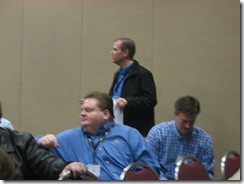 Ryan’s project manager: Tim Cross
Ryan’s project manager: Tim Cross
Second session: “A New GEDCOM: Tools, Syntax and Semantics”
- GEDCOM X - The guts: Multilevel conclusions. The point of GEDCOM X is to enable this process.
- Record model. Conclusion Model. The Materials.
- RDF, XML, JSON, Dublin Core (for source citation terminology)
- FOAF describes users of the system
- HTTP - part of the API specs
- REST - Representational State Transform
- Atom - Standard for providing feeds
- Also a standard for providing search results.
- Common model - common to all models. Formal value is for normalisation and standardisation (e.g. data)
- Record model - persona is the capture of the data of a single person in a specific record (no conclusions).
- Field - 3 value types: original, interpreted, formal
- Not in yet: group list of resources linked to people.
- Not including the notion of a family. That is very difficult.
- We want to model and meet the special cases that people bring in.
- The metadata is simply a Dublin Core description.
- File format.
- Enable a tower of conclusions. It’s never been done like this before.
- Extensibility - how much to allow? This still needs to be decided.
Also see this GEDCOM X discussion on the GRAMPS forum

